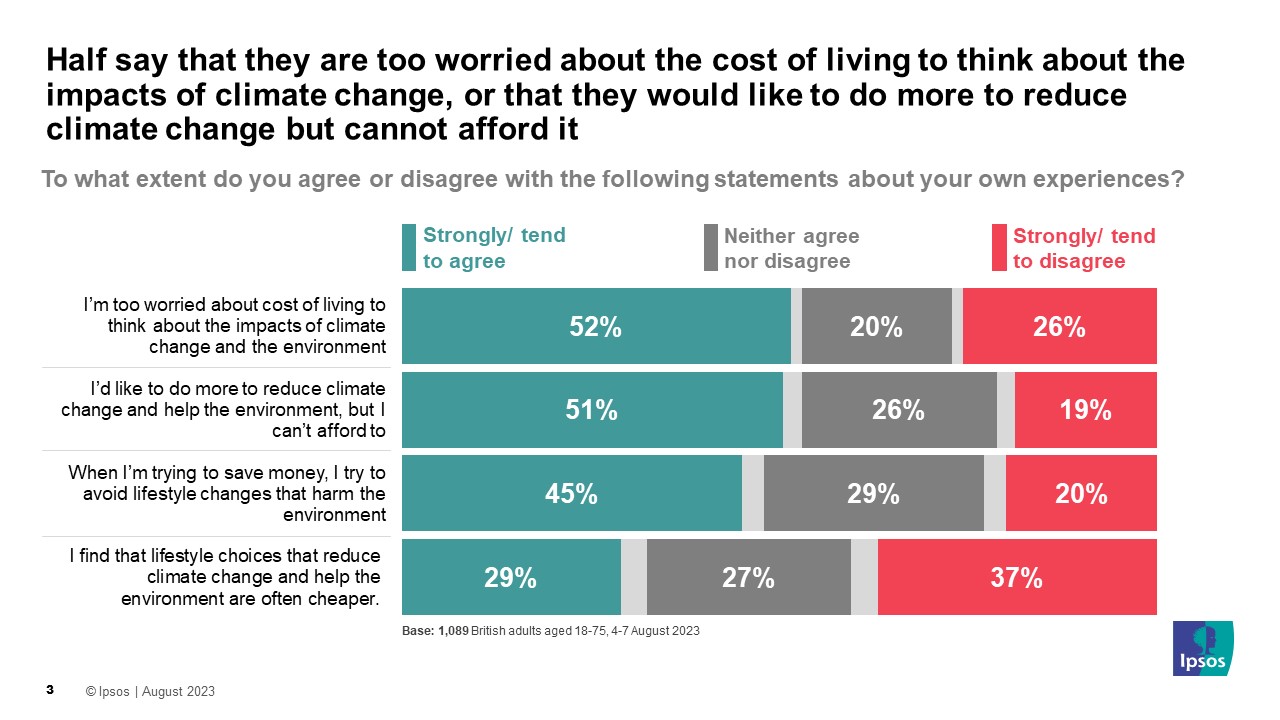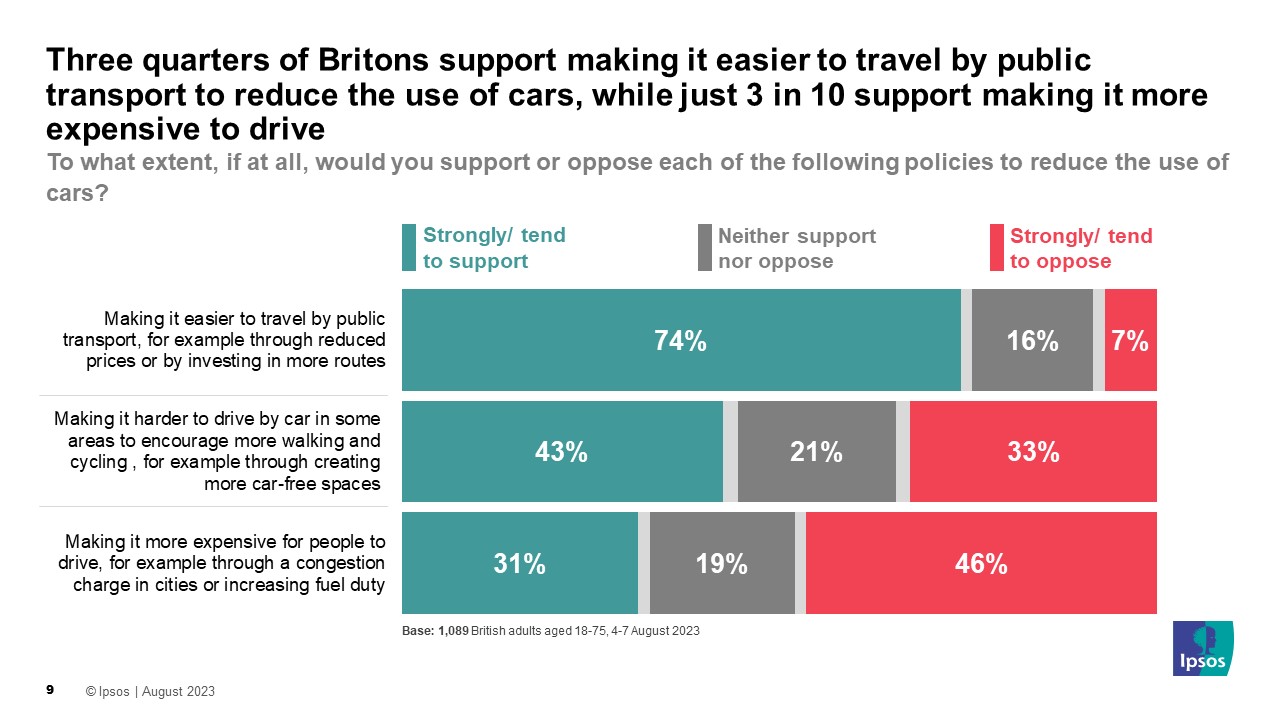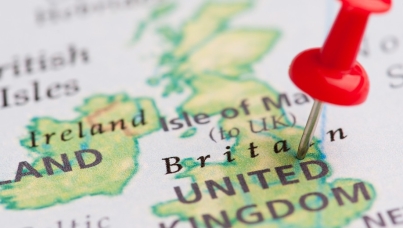Britons concerned about climate change, but cost of living is a barrier to action
- Two in five Britons (41%) believe the economic costs of climate change will be greater than the measures to reduce it.
- However, half say they’re too worried about the cost of living to think about the impact of climate change (52%), and a similar proportion say they would like to do more to reduce climate change and help the environment, but can’t afford to (51%)
- Support is high for investing in renewables (77%) and improving the energy efficiency of homes and businesses (75%); less so for investing in nuclear (49%)
- Around half think the government’s decision to grant 100 new oil and gas licenses will have a positive impact on the economy (47%) and on Britain’s dependence on other countries for energy (55%).
New polling by Ipsos reveals concern about the impacts of climate change among Britons, with 2 in 5 (41%) believing the economic costs of climate change itself will be greater than the cost of measures to reduce it. By contrast, only 1 in 5 (22%) think measures to reduce it will be more costly, with an equal share (19%) saying there will be little difference between the cost of each.
However, the cost of living continues to impact on feelings about taking action to reduce climate change. Half of Britons say they are too worried about the cost of living to think about the impact of climate change (52%) or would like to do more to reduce climate change but cannot afford to (51%). Only 3 in 10 (29%) say they often find sustainable lifestyle choices cheaper.

Looking at steps the UK could take to reduce climate change, three quarters of Britons support investing more in renewable energy (77%) or improving the energy efficiency of homes and businesses (75%) as a way of reducing how much the UK relies on imported energy. And 3 in 5 would say they would still support these policies even if they led to an increase in bills or taxes (60% and 58% respectively). The public is less positive about investing in nuclear energy, although on balance more support than oppose it (49% support, 20% oppose). Similarly, 43% support re-starting or increasing the UK’s own production of fossil fuels while 29% oppose.
Following Rishi Sunak’s announcement that the Government would be releasing 100 new licenses for companies to drill for oil and gas in the North Sea this week, around half think this will have a positive impact on reducing Britain’s dependence on other countries for energy (55%) and on Britain’s economy itself (47%).
More than two in five agree reducing car usage will positively impact climate change – but support for measures that make car usage more expensive is limited
With the expansion of the Ultra Low Emission Zone (ULEZ) across all London boroughs coming into effect next week, new polling by Ipsos reveals limited support among Britons for measures to make it more expensive for drivers to use their cars.
More than 2 in 5 (44%) agree that reducing the use of cars will have a positive impact on climate change (compared to 33% who think it will not make much difference ). However, looking at policies to reduce car use, just under half (46%) say they oppose making it more expensive for people to drive, compared to 31% who support such measures. By contrast, three quarters (74%) of Britons say they would support policies to make it easier to travel by public transport, for example through reduced prices of by investing in more routes. Fewer than 1 in 10 (7%) oppose the expansion of public transport.

Rachel Brisley, Head of Energy and Environment at Ipsos in the UK, said:
Recent polling starkly illustrates the reality of balancing the energy trilemma of security, affordability and sustainability. The cost of living crisis remains top of mind for the British public impacting their ability to take action to reduce climate change even though most would like to do more. Incentives like making public transport easier to use are more popular than penalties such as making it more expensive to drive. And the importance of energy security is highlighted by more than half of Britons thinking new oil and gas licenses will help reduce our dependence on other countries for energy. Balancing these concerns will continue to be a challenge for policymakers as well as the public as we transition towards Net Zero.
Technical note
Ipsos interviewed a representative quota sample of 1,089 adults aged 18-75 in Great Britain. Interviews took place on the online Omnibus between 4th-7th August 2023. Data has been weighted to the known offline population proportions. All polls are subject to a wide range of potential sources of errors.



